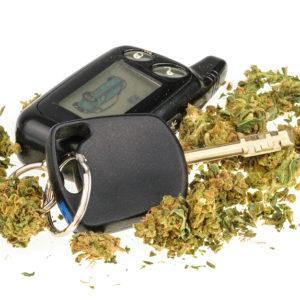Almost no one actually Drove 55, federal law notwithstanding.
But the federal government made sure people got punished for driving faster than the national maximum speed limit, which made driving at reasonable (and previously legal) speeds subject to ticketing — by threatening any state that even hinted it might not enforce the NMSL with loss of federal highway funds.
It took 20 years, but Congress finally repealed the national maximum speed limit in the mid-1990s.
It is hoped it will not take as long to repeal the federal laws that punish banks and other financial institutions for doing business with legal marijuana businesses, including medical marijuana dispensaries and medical practices that prescribe marijuana for pain relief, as an appetite stimulant for cancer patients and as an effective, non-addictive treatment for people with glaucoma.
A majority of states (47, plus D.C., Puerto Rico and the territory of Guam) have legalized or at least decriminalized marijuana to one degree or another, but the federal government — especially under now former attorney general Jeff Sessions — has been adamant about ignoring the will of the people of those states, as well as the laws passed by them.
The federal Controlled Substance Act has been used by the feds much in the same way that threatening to withhold highway funds was used to enforce Drive 55.
Financial institutions — banks, credit unions and so on — that transact business across state lines and are thus subject to federal financial regulations have been threatened with termination of FDIC deposit insurance and other such sanctions if they dare to do business with a legal marijuana business.
This includes making loans, accepting deposits — even allowing accounts to be opened — by any individual or business involved in the legal marijuana business.
The idea being to make it as difficult as possible for these legal marijuana businesses — and individuals — to transact business.
For example, a medical marijuana dispensary can’t issue checks to its employees — who aren’t able to deposit them — because the dispensary can’t get the local bank to open a business account for them.
Banks are understandably leery of even cashing checks for people who work for legal cannabis-related businesses who don’t have accounts with them, out of fear of being targeted by the Department of Justice.
This hasn’t stopped these businesses, but it has cost banks and lenders business. It has also had the perverse effect of driving legitimate businesses underground by imposing a de facto “cash only” mandate on them. And that, in turn, has cost states and counties business by reducing tax revenue collected from these legitimate businesses.
It’s as if Washington were still trying to get states to issue speeding tickets to people for driving faster than 55 when the posted (legal) speed limit is 65 or 70.
But with Sessions gone, the marijuana “speed trap” may finally get shut down.
Members of the House Committee on Financial Services have drafted a bill that would formally end the federal jihad against legal marijuana businesses by explicitly prohibiting the federal government from “terminating or limiting” federal deposit insurance as punishment for “providing financial services to a cannabis-related legitimate business” and prohibit any action by federal regulators intended to “prohibit, penalize or otherwise discourage” financial institutions for providing financial services to cannabis-related legitimate businesses.
The Secure and Fair Enforcement Banking Act would also redefine all proceeds from legal cannabis-related business/transactions as not being “proceeds from an unlawful activity” under federal law — and so no longer subject to federal criminal investigations and prosecutions.
Banks could do business with legal businesses — what a concept!
Related legislation — the Fairness in Federal Drug Testing Under State Laws Act — would rescind another troublesome federal anvil hanging over millions of people’s heads: The double jeopardy federal employees, including disabled veterans, have been threatened with for years.
Anyone working (or who wants to work) for Uncle Sam is subject to not being hired — or can be fired — for any use of marijuana, even if it it’s entirely legal for them to do so in their state and even if it’s on their own personal time and even when legally prescribed by a doctor as part of a pain management regimen and an alternative to physically and psychologically addictive opioids. A recent American Legion poll found that one in five veterans use marijuana to alleviate PTSD, or deal with chronic pain.
Under current federal law, these veterans are ineligible for federal jobs and are subject to being fired if their use of marijuana should be discovered.
“This conflict, between medical care and maintaining employment needs to be resolved,” says Rep. Charlie Crist, D-Florida, who is one of the bill’s co- sponsors. The bill’s Republican co-sponsor is Rep. Don Young of Arkansas, who is also co-chair of the Congressional Cannabis Caucus.
The main wild card is the new attorney general, Bob Barr — who has a “tough on crime” reputation. But these reforms are all about protecting legal activity.
If the new attorney general wants to be “tough on crime,” the very last thing he should be looking to do is use the resources of the federal government to pursue people who aren’t criminals.

